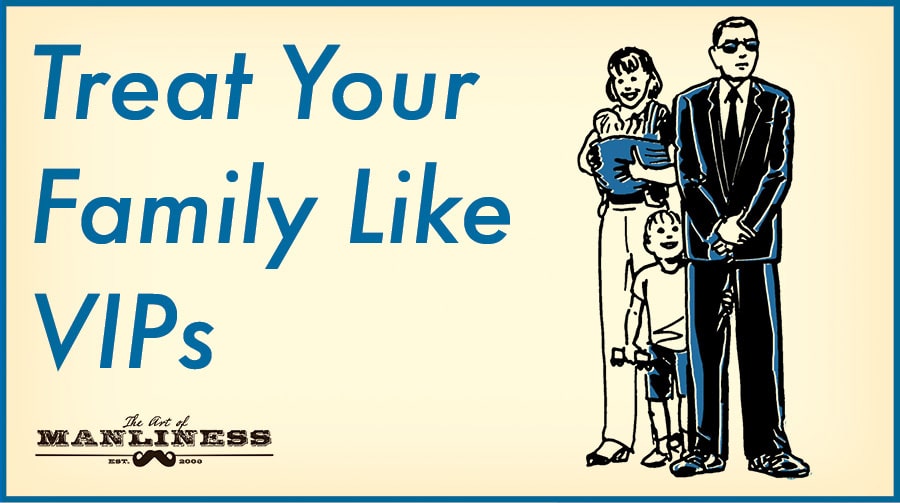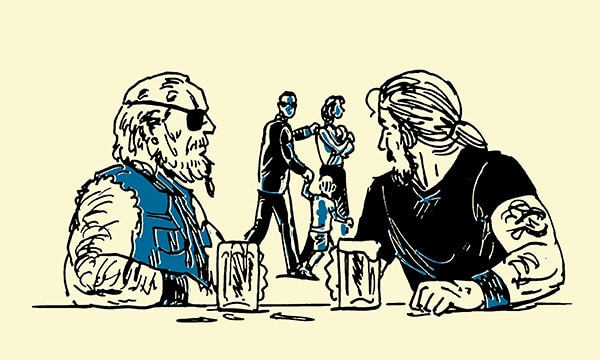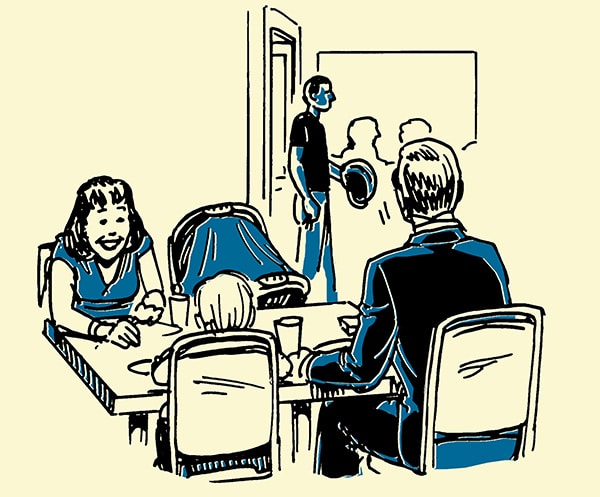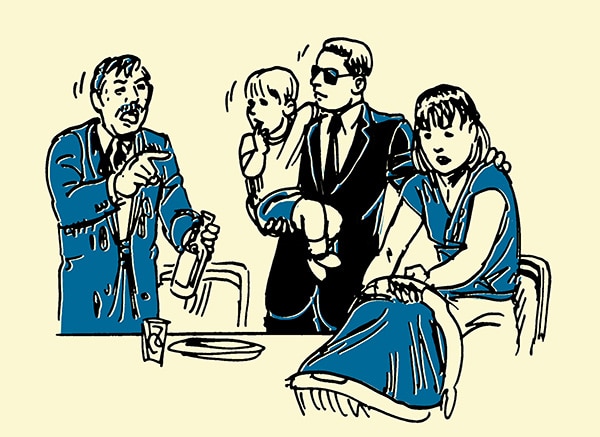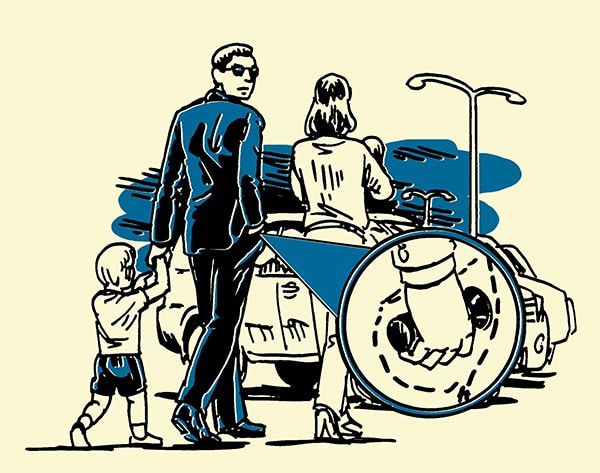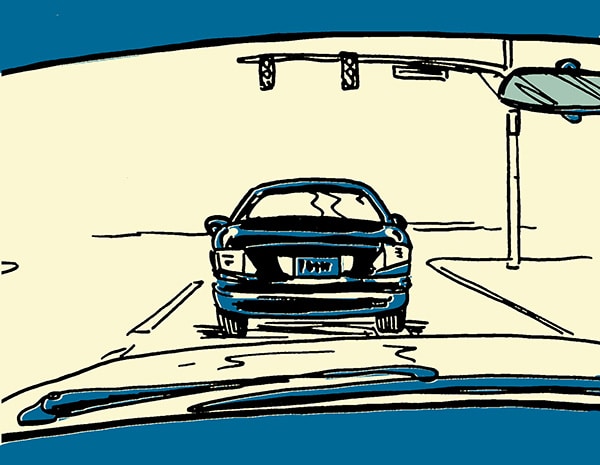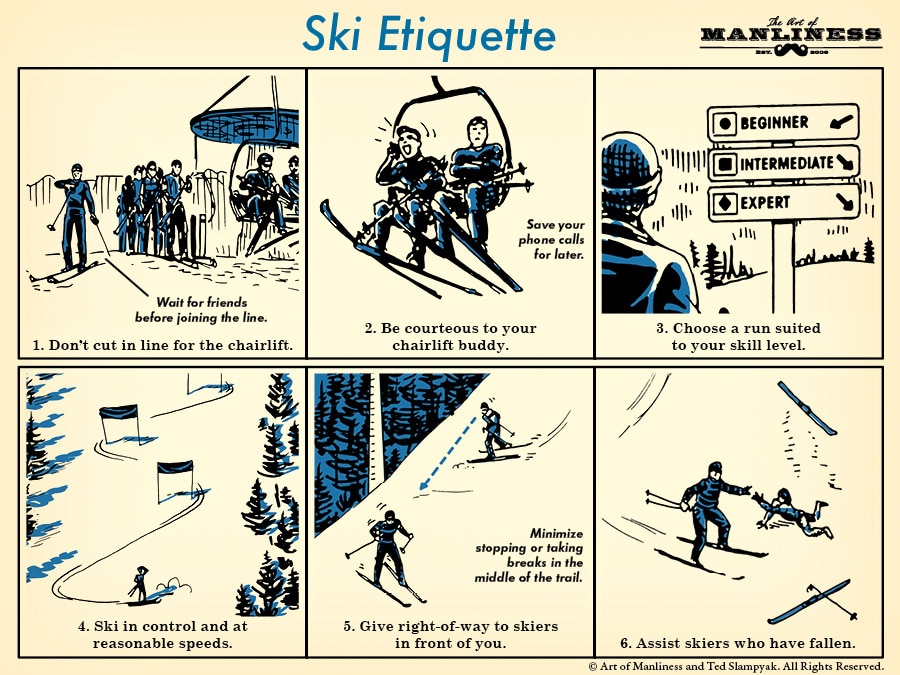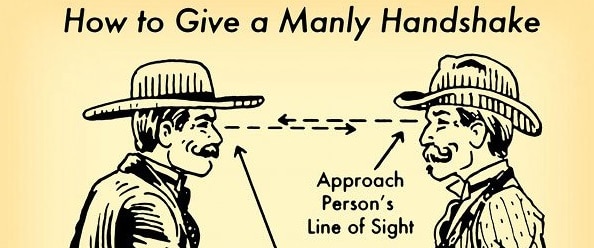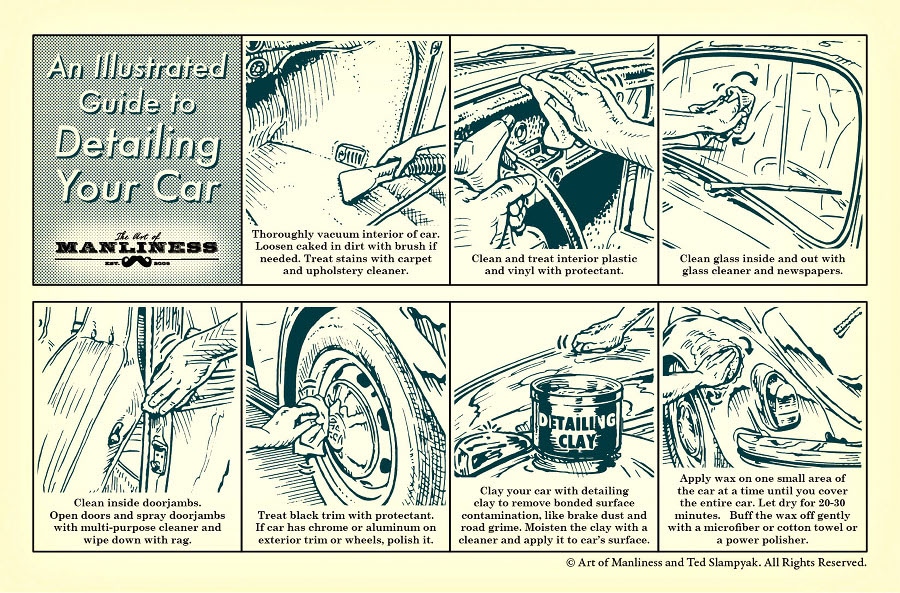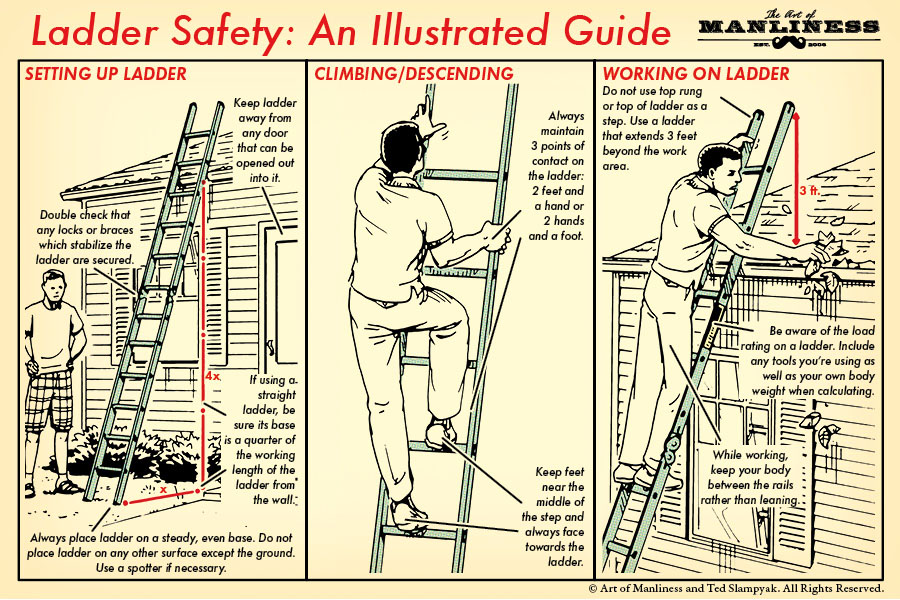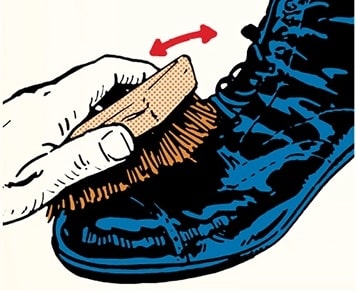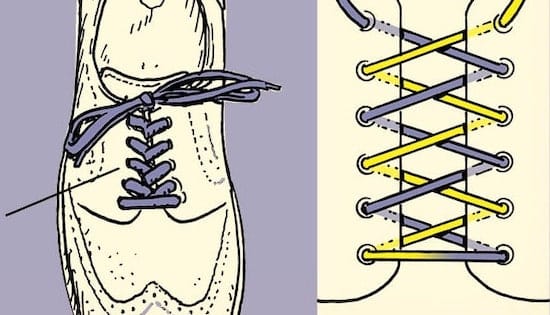If you’ve ever been at an event with a high-level person like a politician, celebrity, or business executive, you’ve likely noticed the guys wearing sunglasses and sporting an earpiece, trying to look as unassuming as possible while vigilantly keeping an eye out for their client, or “principal.”
These guys are part of a personal security detail (PSD), and their job is to protect VIPs from embarrassment, harassment, and harm.
While you probably don’t work as a personal security agent as your day job, if you’re a man with a family, you’ve still got some VIPs that you’re responsible for keeping safe: your wife and your kiddos.
The world is an unpredictable place. While you and your family are unlikely to find yourselves in the middle of a dangerous emergency, crimes and accidents happen, and random, civilian-targeted terrorist attacks are statistically on the rise.
A man’s most ancient role is to act as protector for those he loves. The skillset needed to fulfill this calling has changed from time period to time period, but the charge has remained consistent. It’s a job that need not involve paranoia, becoming overly cautious, or loading up on tons of “tactical gear.” Rather, it involves adopting a calm, but vigilant mindset — a state of relaxed alert — and carrying a few tools that are better to have on hand and not need, than need and not have.
To help us learn how to treat our families like VIPs, I talked to the owner of Greyfox Industries here in Tulsa, OK. He runs personal security details for high-level business and NGO executives when they travel internationally. Below you’ll find insights and tactics that the everyday family man can use to provide personal security protection for the VIPs in his life — his principle loved ones.
Note: Due to the nature of his work, the owner of Greyfox asked that we didn’t use his name in this article. So throughout the post, I’ll simply be referring to him as “Greyfox.”
Be Prepared
PSD spend most of their time planning and preparing to protect their client. While you likely don’t have the time or resources to do the same sort of preparation as a professional PSD, you can apply the same ethos when taking care of your family.
Do Your Research
Before a PSD team goes somewhere with their principal, they’ve done reconnaissance on the place to ensure there aren’t any security threats, and if there are, they do what they can to eliminate or mitigate them. You can do something similar with your family. Before you visit a location you’ve never been, read up on it. If you find out people have died jumping off a certain cliff at a watering hole, avoid that cliff. If the forecast calls for rain, tell the kids to pack ponchos. If the destination is in an entirely unsafe part of town, well, don’t go there.
Be Thoughtful About Your EDC
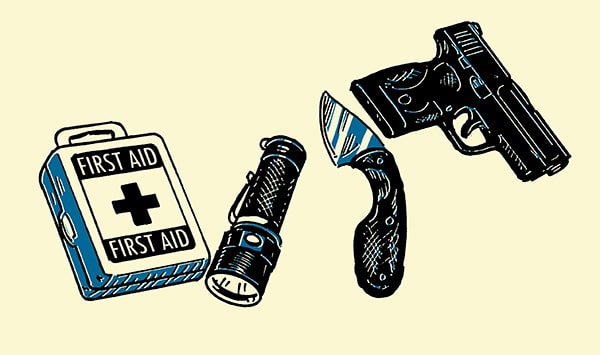
Besides reconnaissance, PSD teams carry the gear they need to protect their clients. Greyfox recommends always having a first aid kit in your car to take care of minor injuries that may occur when out and about. (While you’re at it, consider adding a few other things too.) He also suggests keeping tourniquets stocked in the first aid kit to stop massive bleeding in the event of an active shooting or similar attack.
On your person, you’ll want to keep at a minimum your cell phone (to call emergency crews when needed) and a tactical flashlight. The tactical flashlight is one of the most underrated personal defense tools. A bright flashlight can help you identify threats in dark environments and can be used to momentarily disorient attackers. In a pinch, it could also double as an improvised weapon. Greyfox recommends tactical flashlights from Klarus because of their ease of use and compactness.
Consider Carrying a Weapon
Most professional PSD teams are armed. Whether you carry weapons to defend your familial VIPs from a life-threatening attack is a decision only you can make. If you do decide to carry a firearm, make sure you understand the laws governing its use in self-defense situations and that you regularly train with it. Simply carrying a gun around without knowing how to use it, and regularly practicing your marksmanship, does not constitute adequate personal defense.
As Greyfox puts it, “I want to be at the highest level I can possibly be because my family deserves it, just like my client does.” To keep himself accountable, Greyfox asks himself whether he’d want someone with his own firearms background and training to protect his family:
“If I was hiring someone to protect my family, would my skills be enough? Would I look at my own resume and say, ‘Yeah, this guy is good. This guy is worth putting in’? That’s the way I like to look at it. If I ask them, ‘Well, when was the last time you were at the range, what did you do at the range? Are you actually training or are you just shooting? What are you actually doing on a day-to-day basis?’ Would I hire this individual to protect my family? That’s how I judge myself.”
If carrying a firearm isn’t something you want to do, or you’re in a location (bars, schools, government buildings) or a country that doesn’t allow it, you can carry a knife (though some countries and even states forbid this as well). Greyfox recommended the Ka-Bar TDI knife. Again, if you’re going to carry a weapon for self-defense, make sure you understand the laws governing its use in self-defense situations and train on how to use it.
And if carrying a weapon isn’t something you want to do, at least consider carrying a tactical pen — a pen that can improvise as a weapon if needed. You can carry them anywhere discreetly and legally. For a pen that packs more punch, but looks more obviously “tactical,” check out the Hoffman Richter Stinger pen. For a pen that appears more innocuous (and is cheaper), pick up a Zebra F-701.
Look Like a Protector
Most ruffians are ruffians of opportunity. They’ll only attack or bother a VIP if they think they’ll have a chance of succeeding without suffering harm. If they see a team of strong, fit, and stern-looking men near a potential target, they’re not likely to bother him. The mere presence of these bodyguards is a threat deterrent.
As the PSD for your family, make sure you have a presence that will deter would-be troublemakers. First, get strong and look fit. Like other animals, humans key in on certain physical characteristics to determine whether another person would be dominant or submissive in a fight. Wide shoulders with a tapered torso in men indicate strength and physical fitness, and thus physical dominance. Would-be attackers will likely think twice before attacking a man who looks fit and strong because there’s a good chance they’ll suffer some damage in the attempt. So if you’re not as in shape as you’d like to be, get going on it; being able to protect your family is some of the best motivation for getting and staying strong.
Besides being fit, just carry yourself in a confident manner. This doesn’t require that you look like a scowling Secret Service agent or stick out your chest like an Affiliction-tee-wearing dude-bro. Stand up straight, look people in the eyes, and speak low, slow, and with confidence. The goal is to project to others that if there’s a problem, you’re going to do something about it and not be a passive victim.
Be the Agent in Charge
A full PSD team has several agents who have different jobs. For example, there’s an advance team that’s on location before the VIP arrives to assess the situation and head-off any potential threats. And pre-posted agents assume positions throughout an area to monitor risks.
As the PSD for your family, you don’t have the luxury of having a full team of agents dedicated to protecting your family. So think of your role as that of the “Agent In Charge” or AIC. In the world of PSD, the AIC stays one step to the rear and one step to the right of the VIP at all times. This position allows him to constantly keep the principal in sight, and to direct them to where they need to go should a threat arise.
As the AIC of your family, you’ll want to assume a physical position similar to that of a professional AIC. Stay near your wife and kids. If a threat arises, you’ll be able to direct them to safety. When entering a building, open the door for your family and let them go in first. It’s good manners, but it also naturally and discreetly puts you in the ideal AIC tactical position, as it allows you to keep your family in sight as they go inside.
When you’re out walking on sidewalks, stand between the street and your family. “Not only is it the gentlemanly thing to do, but in the world of security, that’s what you should be doing,” said Greyfox. “It adds a layer of protection to your family. If some car starts swerving towards you, you can move them out of the way. This is especially important nowadays with people texting and driving.”
As the AIC, work with your wife to have a plan in place on what you two would do if trouble arises. Again, you don’t have to be super intense with this. Just make sure you’re both on the same page. Decide which parent would be in charge of/responsible for which kid(s) if you had to escape from an active shooter or other threat. For example, Kate and I know that if something bad were to happen, she’s to grab our daughter, and I’m to grab our son when we hightail it out of there. Also decide that if you guys get separated during the situation, you’ll meet each other at the car.
If a Place Looks Like Trouble, Leave
In the professional PSD world, the AIC is the man who decides if the principal needs to be directed out of a potentially dangerous environment. The best outcome for a PSD is if the principal never has to encounter the potential for harm, harassment, or embarrassment. As the AIC of your family, your job is to do likewise.
When you’re out with your family, survey the place you’re in. Be prepared to leave if you don’t feel like it’s safe for your family. This will rarely happen, but it should be an option. Don’t be paranoid, but don’t let the inconvenience of having to go to another restaurant or skip out on a baseball game early deter you from keeping your family safe, either. A PSD does his job well if he can completely avoid a situation that may potentially escalate.
Maintain Situational Awareness
As you’re out and about with your family, practice good situational awareness. We’ve written about how to do that in detail here, but here are the basics:
Put yourself in a position of optimal observance. Typically this means being in a place where you can see all entrances and exits. At a restaurant, ask to be seated at a table with the best vantage point. If that’s not possible, at least sit at the table with your family so you can see the most exits and entrances.
Establish baselines. When you’re in a place, figure out what’s “normal” for that situation. That’s going to change from situation to situation, but you should be able to establish baselines relatively quickly.
Look for anomalies. Once you establish a baseline, start looking for anomalies. What sort of behavior would cause a person to stick out in that particular situation? Greyfox recommends checking faces and hands to look for anomalies, as these parts of the body reveal threats the best. Hands hold what can kill you; faces (particularly eyes), show intent. You don’t have to be nutty about this. Don’t stare people down one-by-one. Just play it cool, glance at hands and faces, and actually notice what you see.
If you observe an anomaly, it doesn’t necessarily mean the person is a threat, so there’s no need to get all amped up. Just notice it and keep it front of mind.
Have a plan. In every place you go, have a plan of what you’re going to do if you notice an anomaly. Let’s say you’re in a movie theater with your family. One baseline would be that people would enter the theatre through the normal entrances and exits, not the emergency exits near the screen. What would you do if someone entered the theater through one of those exits? It could just be a kid trying to sneak in for a free movie, or it could be an active shooter. Increase your level of alertness and decide what you’ll do should the interloper turn violent.
Again, anomalies are rarely going to happen, but you’ve got to have a plan for what you’re going to do should they occur.
Complete these games/exercises to further increase your situational awareness.
If Someone Is Giving Your Family Trouble, Leave. Don’t Escalate.
If your family is facing an imminent, life-threatening attack, your priority is to keep them safe. And that usually means getting them out of there as fast as possible. As we discussed in our article about what to do in an active shooter situation, running is your first line of defense. Fighting back should always be on the table, but typically as a last resort. When you’re with your family, the priority should always be to get them as far away from the threat as quickly as possible. If running isn’t an option, then you do what you have to do to protect your family.
Where things get murky is what to do if someone is just verbally harassing your family. Most men would want to defend their loved one’s honor by immediately telling the harasser to shut the hell up. In the world of PSD, they handle those types of situations much more discreetly. Depending on the situation, a team of agents will escort the harasser out of the area. As the AIC of your family, you likely won’t have that option. So you do what professional PSDs would do if they can’t move a harasser: move the principal, i.e., your family.
“You’ve got to check your pride before putting your family at risk,” says Greyfox. “Yeah, you could get aggressive and have a yelling contest with an asshole, but is that going to be best for your family? Probably not. It will freak your kids out and could needlessly escalate the situation.”
So instead of escalating things, calmly and confidently remove your family from a situation in which they’re being harassed. If the harasser pursues you and gets physical, then you’re within your right to use a similar amount of physical violence to end the threat. So if he’s shoving your wife, you can punch the guy, but not shank him with your knife or shoot him with your gun.
But again, your job as AIC for your family is to make sure that things never get that far. Just get them out of there.
Keep Your Flashlight At the Ready When Walking At Night
Would-be attackers like to use the cover of darkness to surprise their victims. So when you’re out with your family at night, keep your tactical flashlight at the ready. “You don’t need to take your flashlight out and shine it around like an idiot while you’re walking in a dark parking lot,” Greyfox says. Again, discretion is key. Just keep your hand in your pocket and around your flashlight so you can deploy it quickly should you notice a potential threat.
Let Your Family Get in the Car First
When you’re getting into a vehicle, you’re pretty open to attack because you’re so focused on getting children or stuff loaded into the car. When you’re out with your family and they’re getting into the car, remember to assume the position of AIC — stay behind your principal. “Stand at the back of the car while your family gets in. You don’t need to act like you’re posted up protecting your family from would-be assassins, but keep an eye on your family and glance around for possible threats,” Greyfox suggests. If you’re in the car before your family gets in and an attack does happen, you’re at a tactical disadvantage. Threats don’t even have to be attackers. It could be little old ladies who are backing up their boat of a Cadillac and can’t see that they’re about to hit your kid.
When Stopped in Your Vehicle, Be Sure You Can See the Tires of the Car in Front of You
The driver is an important part of the PSD team. These guys are trained in tactical driving and know how to get the principal to safety as quickly as possible. While you’ll likely never have to utilize a Rockford J-Turn to escape from bad guys, one simple tip you can take from PSD drivers is to make sure you can see the tires of the cars in front of you whenever you’re stopped at an intersection. “This allows you enough room to steer and drive away if you need to,” Greyfox explains. Beyond threats, it allows ease of movement if an emergency vehicle needs to get its way through traffic; if everyone is bumper to bumper, nobody can move to the side.
Conclusion
The members of your family are your VIPs in life. Give them the same protection that corporate or political VIPs get when you’re out and about together. You don’t have to go full-on, tacti-cool bonkers with it. Like real-world PSD, be discreet. Use common sense, maintain situational awareness, and have a plan for what you’ll do to protect your family from harm.
Listen to my podcast with Nick Hughes on being your own bodyguard:
Tags: Self-Defense & Fighting

